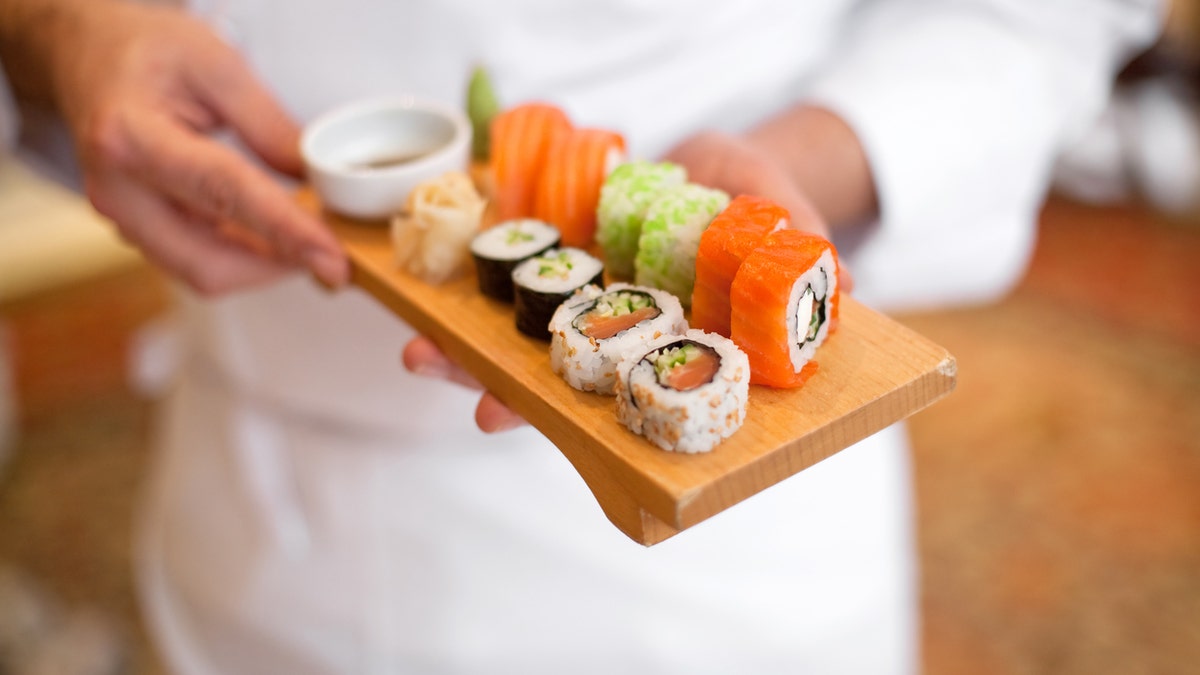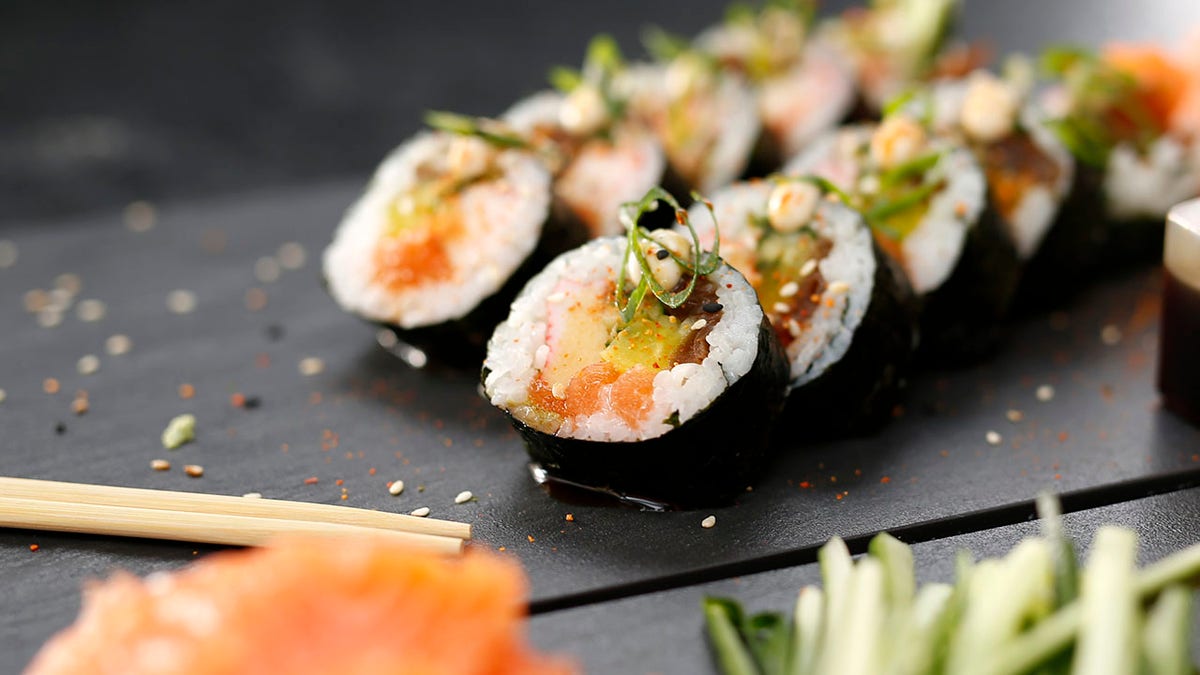Fox News Flash top headlines for March 9
Fox News Flash top headlines are here. Check out what's clicking on Foxnews.com.
A viral trend of "sushi terrorism" has nearly crippled an iconic Japanese dining industry, leading to arrests and reforms after the spread of unhygienic pranks.
Viral videos began emerging on social media last year showing people at Japanese "kaitenzushi" conveyor-belt sushi restaurants wiping saliva on a plates of fish, drinking out of community cups of soy sauce -- and spraying hand sanitizer in food as dishes rolled past.
Those pranks eventually led to the arrests of three people in Aichi, a Japanese prefecture in central Honshu Island, according to a Thursday report in NBC News. The two men, ages 21 and 19, and a 15-year-old girl, were caught after they were connected to a viral video showing them drinking soy sauce directly from a communal cup last month at a Kura Sushi location.
SUSHI STACKS ARE TRENDING ON TIKTOK: TRY THE RECIPE

Conveyor belt sushi. (IStock)
The viral trend has shaken the country's multibillion-dollar kaitenzushi industry, long known for high standards of cleanliness, sending shares of the companies that own such establishments plummeting and causing reforms for the eateries long beloved in Japanese culture.
Choshimaru, a chain of kaitenzushi establishments located around Tokyo, said it would be phasing out its conveyor belt system by the end of April as a result of the pranks, switching to a system that forces customers to use a touch panel system.

A plate of sushi. (iStock)
TIKTOKERS ARE MAKING 'OREO SUSHI,' A RISING NO-BAKE DESSERT TREND
Meanwhile, Kura Sushi vowed to do everything it could to protect the conveyor belt sushi model, expressing optimism that the recent arrests will deter copycat pranks and put an end to the viral trend.

Japanese sushi. (Fox News)
CLICK HERE TO GET THE FOX NEWS APP
"We sincerely hope that this arrest will serve as a catalyst for widespread public recognition of the ‘crime’ of nuisance behavior that shakes the very foundations of the system based on the relationship of trust with our customers, and we truly hope that there will be no more copycat crimes," the company told NBC News.








































